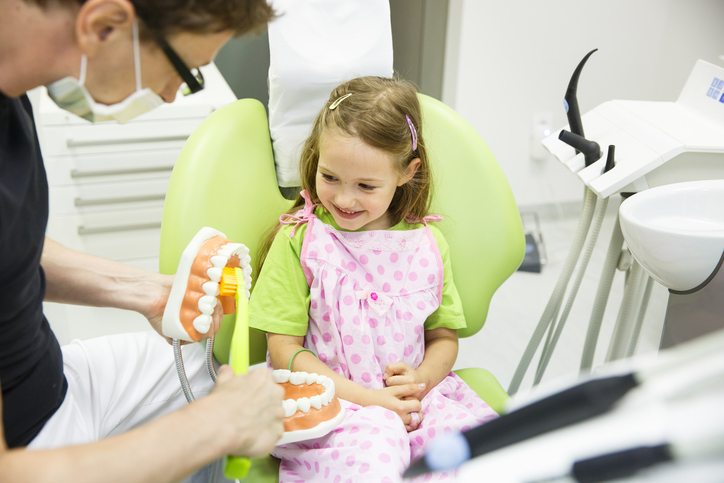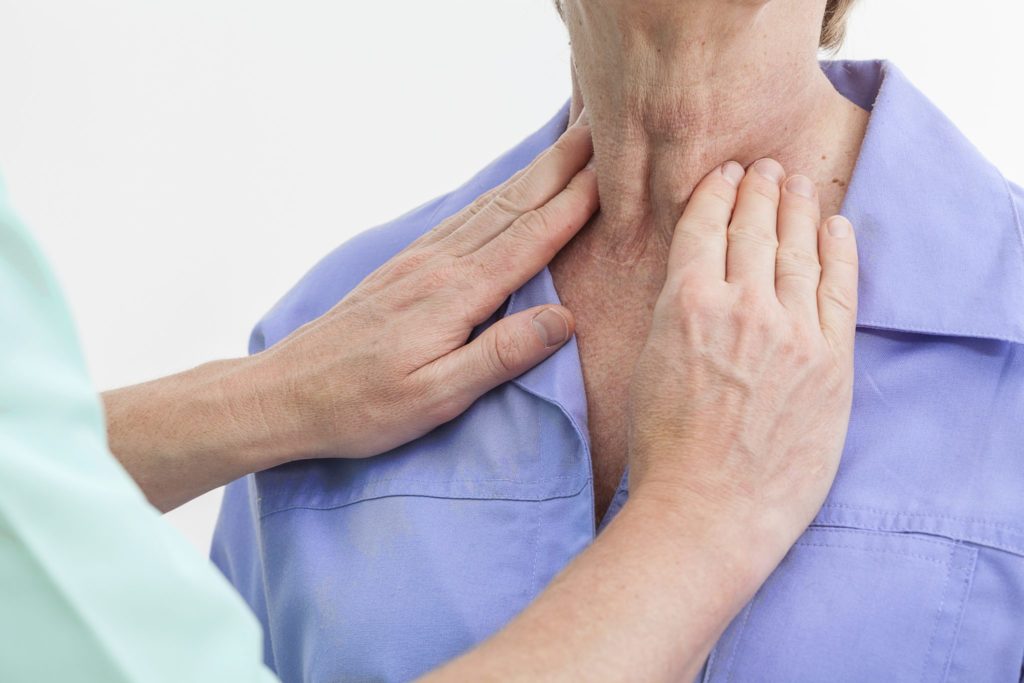News/Blog
During their visits to our Wilsonville dentistry for kids, a lot of parents ask – “Why do I need to clean or get fillings on baby teeth? Won’t they just fall out?” It might be tempting to skip flossing and brushing your child’s teeth at night. When you have to wrestle pants onto tiny, temperamental people all day, brushing teeth seems like just one more aggravating chore. But research indicates that poor childhood oral health is a predictor for lifelong problems with tooth decay and gum disease. Oral Health Matters at Every Age Just like an adult, babies and children need their teeth to eat, speak, and smile. Children with cavities find them just as painful as adults, and are unable to communicate as adults do. Moreover, baby teeth maintain space in the mouth for the permanent teeth. If a baby tooth falls out too early, other teeth might drift into the space. This can block permanent teeth and cause crooked tooth placement, which can affect proper oral and speech development and lead to the need for braces. That’s why it’s important to start good oral hygiene habits early. Because it’s hard to tell when teeth might come in, it’s best to get into the habit of wiping your baby’s gums with a soft, wet washcloth as part of your daily routine. Around six months, your child’s first tooth will appear and you’ll need to start brushing twice a day. The American Academy of Pediatric Dentistry recommends that parents start bringing their kids into see a dentist shortly after their first teeth emerge or by the age of 1, whichever comes first. While this may seem like an early age to start visiting the dentist, these early visits allow us to ensure a child’s oral health development is heading in the right direction. Any problems that are noticed early on are easier to correct then when caught later in a child’s development. Schedule Your Child’s Next Appointment at Our Wilsonville Dentistry for…
Read MoreDoes a sip of coffee make you wince? Have you been avoiding cold treats like ice cream because you don’t want to deal with the pain? Sensitive teeth can make even the toughest of us let out an “OUCH!” and have us thinking twice about whether to reach for a hot or cold drink, where we’ll chew our food, and even if we’ll breathe through our mouths! At our Wilsonville family dentist office, Dr. Denise Gates sees too many patients suffering from this common oral health condition. What Causes Sensitive Teeth The hypersensitivity and discomfort of sensitive teeth can be caused by a few different issues. Enamel, whether it’s been cracked, decayed, or worn away, can expose a tooth’s sensitive inner dentin, so proper dental hygiene is important in preventing sensitive teeth. Make sure not to brush TOO aggressively, however, as this can injure your gums and expose tooth roots. The other major cause of tooth sensitivity is periodontal (gum) disease. As plaque and tartar build up on your teeth, it can cause your gums to recede, leaving the root surfaces of teeth exposed. Regular checkups are important to detect and treat issues like gum disease and tooth decay to keep you satisfied with your smile. How to Prevent Tooth Sensitivity Depending on the cause, there are a few things you can do to ease your discomfort. First, try to avoid acidic foods and drinks like soda to fight further enamel erosion. Next, a sensitive toothpaste can help block sensation traveling from the tooth surface to the nerve. If these don’t help you’re your hypersensitivity, then in-office treatments may be necessary. However, the most important step you can take to lower your risk of suffering from sensitive teeth is to practice quality oral hygiene at home every day. The American Dental Association recommends patients brush twice a day and floss daily to prevent the development of tooth decay and gum disease – the most likely cause of sensitive teeth. Brushing and flossing…
Read MoreA plan to manage anxiety goes a long way with dental visits Not many people enjoy visits to the dentist. Fortunately, we as dentists understand this and strive to create a friendly, relaxing environment for our patients. As your Wilsonville family dentist, I am trained in handling fearful patients and offer a variety of methods and treatments to help reduce this stress.Patients who have a lot of anxiety about an exam or procedure need to communicate these fears to their dentist and staff. By being aware of your concerns, we can create a plan to manage each persons’ anxiety. I find sometimes all it takes is explanation of the procedure and what to expect. I like to: Take the time to explain the procedure and materials used. Make sure that the patient knows what they will soon feel and for how long. I give patient cues to inform me if they are uncomfortable or need me to stop prior to starting any work I encourage patients to listen to their favorite music or radio during the procedure to aid in stress reduction. Use sedation methods where indicated for patients who need it. We will create a stress reduction management plan for you! No two people are the same and no plan for dental anxiety management will be the same. Simply inform us next time you are in and we will work to create the ideal stress reduction management plan catered to your needs. I take great pleasure seeing patients leave my Wilsonville family dentist office feeling good about their visit and, most importantly, with a smile that helps them feel their best.
Read MoreAt Gates Family Dentistry, our Wilsonville dentist reviews each of our patients’ health records to determine his or her risk of oral cancer as part of our patient evaluation process. That’s because oral cancer screening has become a key component in protecting our patients’ long-term health. However, many of our patients are surprised that a visit to the dentist includes more than just a checkup of their teeth. A lot of patients don’t expect head and necks exams because they are unaware of their risk of oral cancer. In the U.S., approximately 50,000 Americans will receive an oral cancer diagnosis this year, according to the Oral Cancer Foundation. The disease will result in the deaths of over 9,700 patients, roughly the equivalent of one person an hour, 24 hours a day. Of those nearly 50,000 patients newly diagnosed with oral cancer, only slightly more than 50 percent will still be alive in five years following their diagnosis. While these numbers seem to suggest that oral cancer ranks as one of the hardest forms of cancer to treat, the truth is that when caught early the survival rate of an oral cancer diagnosis is remarkably high. Unfortunately, the majority of oral cancer diagnoses occur late in the disease’s development, well after the cancer has had a chance to metastasize to other areas of the body. This makes early detection of oral cancer a key component in successfully treating the disease. With increasing awareness of cancers is should come as no surprise that in our Wilsonville dentist reviews and has implemented screenings for head/neck and intraoral cancers into our daily practices. Oral Cancer Screening Process What does a screening entail? The first part is palpation of lymph nodes and glands along the head and neck region. Feeling under the chin, along the jaw, the joint, into the temporal region, along the base of the skull then down along the muscles of the neck to the clavicle. There are important glands, lymph nodes and muscles…
Read MoreLet’s continue the discussion on decay we started last month as our Wilsonville dentist reviews the factors that play a role in getting cavities and preventing cavities. In our last post, Dr. Gates discussed bacteria and diet as two very important factors in decay. Now, let’s look at the role hygiene, saliva and additional protective factors play in the formation of cavities. Hygiene As you hear me say all the time, oral hygiene plays just as important role in preventing cavities as it does in maintaining any fillings, crowns or dental work in your mouth. Good oral hygiene includes flossing daily, brushing morning and night, and – depending on your personal preference – maybe some additional steps such as mouthwash, fluoride rinse, proxy brushes, water pick. Good hygiene aids in removing food debris and harmful plaque that feeds and houses the bacteria that creates the cavity forming acids. I want to touch a bit more on flossing as there was recent controversy in the media concerning whether the habit really makes a difference. We brush our teeth to remove cavity forming materials and bacteria that collect throughout the day, right? So how do you remove the materials in-between and at the corners of our teeth? Simple – by flossing. Teeth are not flat. They have some of the most amazing anatomy, and if you are not flossing you are simply not cleaning the side of your tooth. Finally, with hygiene it is not uncommon to be asked about the benefits of using electric toothbrushes. Research clearly shows improved plaque removal using an electric toothbrush over-hand brushing. So, yes, I strongly recommended an electric toothbrush. I have both Sonicare and Oral B/Braun electric toothbrushes at home for me and my family. I happen to enjoy using both. Saliva Saliva acts as one of our natural defenses against acids in the mouth. Our saliva contains minerals in it that both buffer the pH level of our mouth and aid in surface remineralization/maintenance of the crystalline structure of our tooth enamel. Calcium and phosphates found in…
Read More





